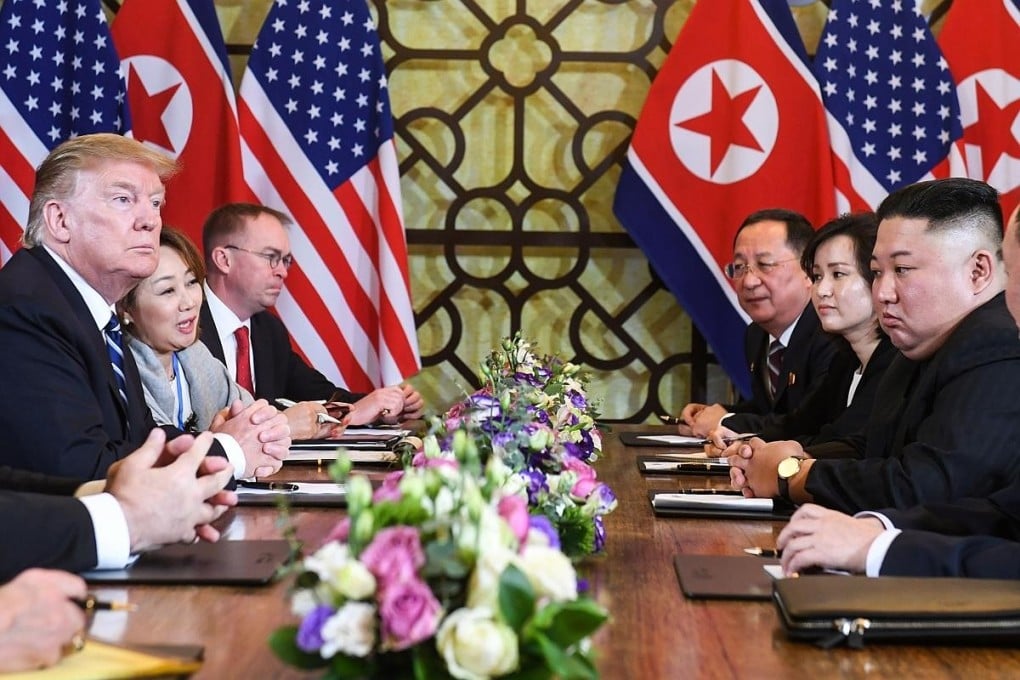Advertisement
Trump-Kim summit 2019: Collapsed talks a risk for North Korea with silver linings for China and Japan
- Protracted negotiations between Washington and Pyongyang leaves the door open for Beijing to act as a mediator
- Japan, which has largely been left out of denuclearisation talks, has indicated its desire to take on a more active role
4-MIN READ4-MIN

The implosion of Donald Trump and Kim Jong-un’s second summit on denuclearisation in Hanoi leaves few clear winners but holds silver linings for China, Japan and a US president often attacked as untrustworthy on national security.
Trump’s failure to reach a deal highlighted the limits of his unconventional one-on-one diplomacy as he sought to extract concrete steps towards disarmament from North Korea, after his largely symbolic summit with Kim in Singapore, said some analysts.
Trump said he walked out of talks on Thursday after Pyongyang demanded the complete lifting of all sanctions.
Advertisement
But North Korean Foreign Minister Ri Yong-ho said Kim offered “realistic” terms including the dismantlement of the key Yongbyon complex in exchange for partial sanctions relief. Pyongyang demolished a cooling tower at the Yongbyon site in 2008, but restarted activity at the facility the following year.
“It isn’t surprising that this broke down over the sequence magnitude of sanctions relief – North Korea has been saying it for months: full sanctions relief, not end of war, is what it views as a measure that must come before any further nuclear steps,” said Vipin Narang, a non-proliferation expert at Massachusetts Institute of Technology. “One can only paper over the differences for so long.”
Advertisement
Advertisement
Select Voice
Select Speed
1.00x